The French MICA (Missile d’Interception et de Combat Aérien) is a sophisticated air-to-air missile renowned for its versatility and advanced capabilities. Discover the best of the French MICA Missile, designed and developed by MBDA France. It is one of the most advanced all-weather, fire-and-forget air-to-air missiles available, with a range of up to 80 kilometres.
The mighty Fox-3 missile provides an unparalleled advantage to Rafale and Mirage pilots, enabling them to prevail in air-to-air combat even in the most challenging situations.
How the MICA Missile System Sets a New Benchmark in Modern Warfare Design
During the 1970s and 1980s, France’s Matra firm introduced the R.550 Magic, a short-range air-to-air missile designed to rival the American AIM-9 Sidewinder.
Building on this momentum, Matra went on to develop the Super 530, a short- to medium-range missile positioned against leading contenders like Britain’s Skyflash, Russia’s Vympel R-27, and America’s AIM-7 Sparrow. For nearly thirty years, these weapons stood at the forefront of aerial combat technology, shaping the balance of air superiority across the globe.
However, when very high-quality, next-generation updates were made to the American Sidewinder, elevating it to the 9X level, and the newly designed AIM-120 AMRAAM was introduced, the French Air Force in the 1990s felt an urgent need to develop a state-of-the-art air-to-air missile.
This missile was required to perform dual roles in both short- and medium-range categories, as well as support beyond-visual-range engagements.
The French Air Force and Navy required a missile capable of arming their Mirage 2000 and the latest Rafale fighter jets, ensuring logistical simplification, cost-effectiveness, and seamless integration with different aircraft with minimal modifications.

To meet all operational requirements, France designed a missile that could excel as an air-to-air weapon while leaving room for future adaptation into surface-to-air systems. This vision gave birth to the MICA missile. Development began in 1982 under Matra, with the first trials held in 1991.
By 1996, MICA officially entered service as the primary air-to-air missile for both the Rafale and Mirage 2000. It replaced the Super 530 in the interception role and the Magic II in close-range dogfighting.
Offered in two variants—the radar-guided MICA-EM and the infrared-guided MICA-IR—the missile covered both short- and medium-range beyond-visual-range missions.
Crucially, it was engineered for seamless integration across French fighter fleets, including the Mirage 2000, Mirage F1, and, later, the Rafale, ensuring adaptability with minimal future modifications.
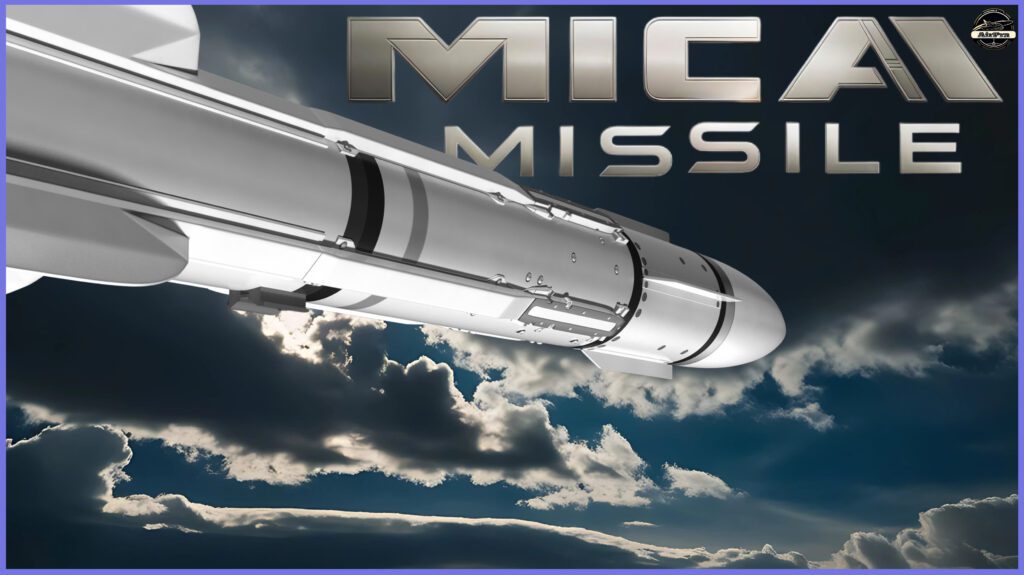
MICA – Redefining Flexibility in Modern Air Warfare
The MICA is a French anti-air, multi-target, all-weather, fire-and-forget short- to medium-range missile system designed by Matra and manufactured by MBDA France. In French, MICA stands for Missile d’Interception, de Combat et d’Auto-défense (Interception, Combat, and Self-Protection Missile).
The concept of the MICA emerged in response to the changing air combat landscape, particularly the increasing importance of flexibility and electronic warfare, with a focus on achieving high agility and dual-seeker capability.
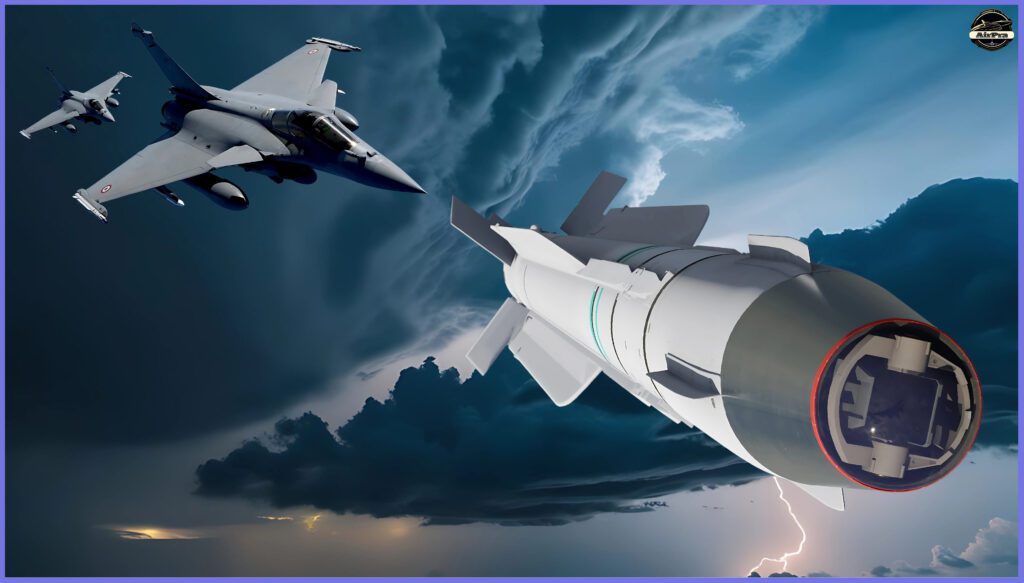
The missile’s radar seeker was a significant technological leap, capable of engaging targets at longer ranges with high precision. Since 1991, extensive trials have been conducted to refine the missile’s performance.
The infrared seeker underwent rigorous testing to ensure it could operate effectively in cluttered environments and resist flares and electronic counter-countermeasures (ECCM).
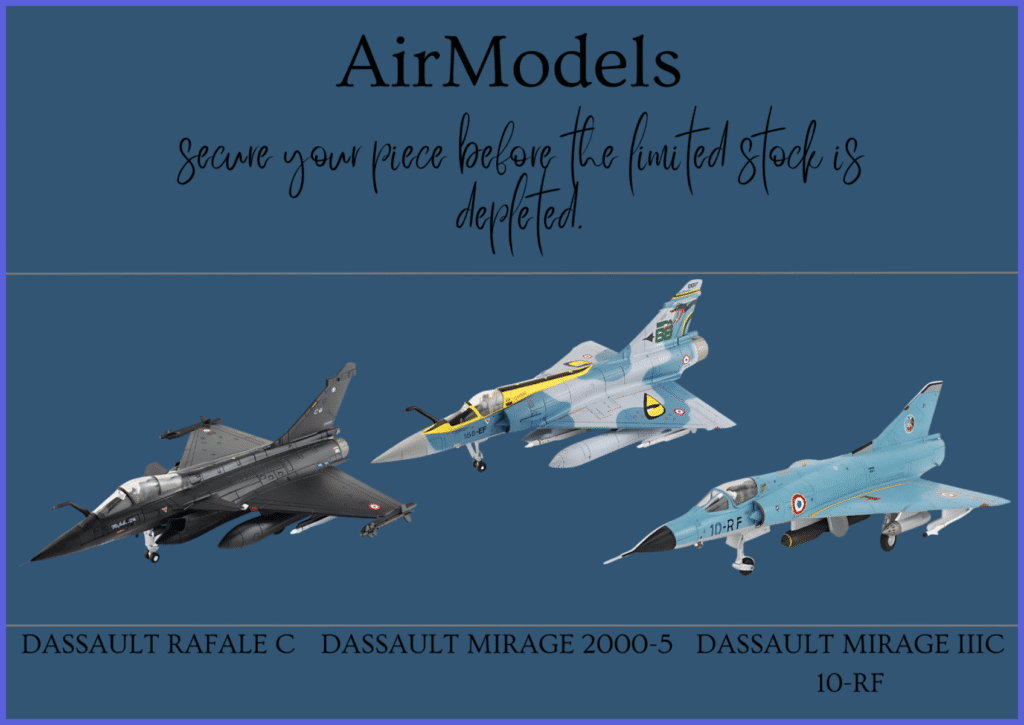
Engineering Excellence: Design Details of the MICA Weapon Systems
Designed for both air-to-air and surface-to-air engagements, it serves as a comprehensive solution for modern combat scenarios.
Design and Features_
Dual Seeker Options: The MICA missile is unique in offering two interchangeable seekers within the same missile body, apart from the nose cone sections.
MICA RF (Radio Frequency): Equipped with an active radar homing seeker, it delivers robust performance in various weather conditions and against targets with low infrared signatures.
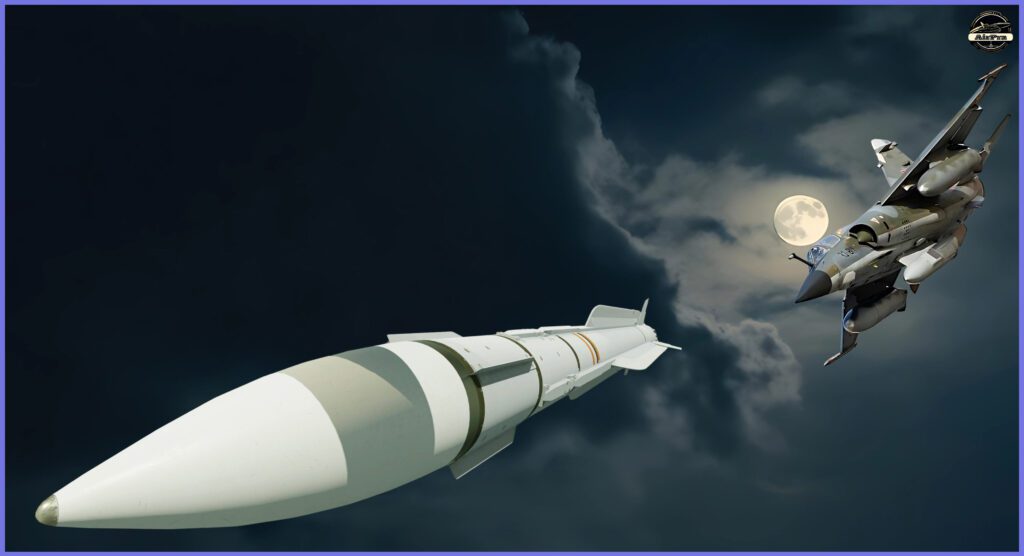
MICA IR (Infrared): Features a passive dual-waveband imaging infrared seeker, enabling effective engagement of targets with low radar cross-sections and in environments with heavy electronic countermeasures.
Thrust Vector Control (TVC): Incorporated into the missile’s design, TVC enhances manoeuvrability, allowing the MICA to effectively engage highly agile targets.
Compact Dimensions: The missile measures approximately 3.1 meters in length and 0.16 meters in diameter, weighing around 112 kg. It features a proximity or direct impact detonation mechanism with a 12 kg warhead.

Performance_
Speed and Range: The MICA missile is capable of blistering speeds of up to Mach 4. In its air-to-air configuration, it can strike targets at ranges between 60 and 80 km, while the vertical launch surface-to-air variant delivers effective coverage of up to 20 km.
Engagement Envelope: Designed to counter threats from treetop level to high altitude, the MICA offers all-around protection against diverse aerial targets. Its lock-on after launch (LOAL) capability enables it to strike enemies beyond the seeker’s initial field of view.
Uniquely, when carried by a Rafale, the MICA-IR variant feeds infrared imagery directly to the aircraft’s central processing system, transforming the missile into an additional onboard sensor.
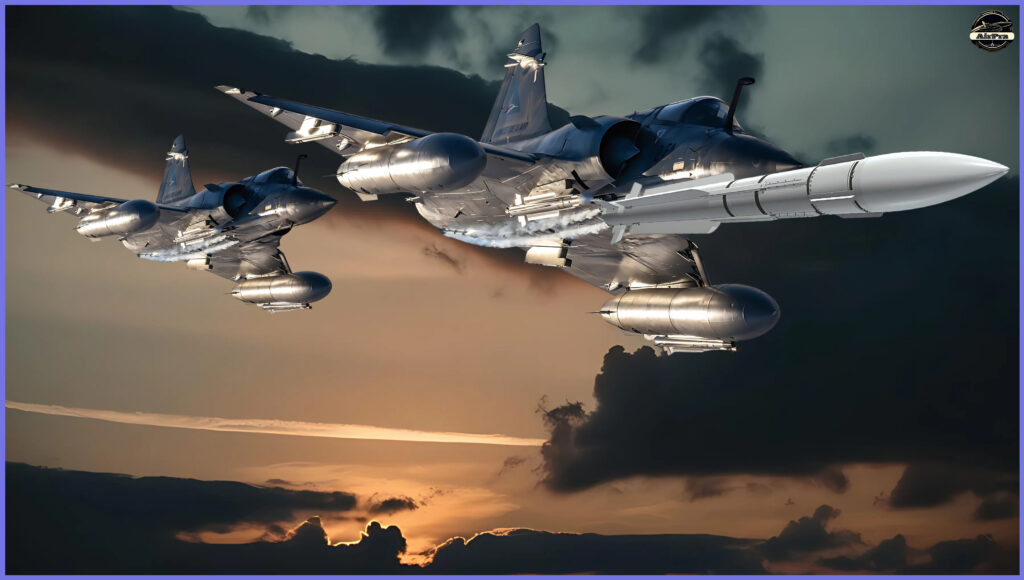
Surface-Launched Versions_
VL MICA RF and VL MICA IR: Engineered for vertical launch from both transporter erector launchers (TEL) and naval vessels, these missiles deliver full 360-degree coverage against incoming threats.
MICA NG (Next Generation): The next-generation MICA (MICA NG), now in development, is set to bring major upgrades with advanced seekers and an extended engagement range, specifically tailored to counter stealth targets. Its new infrared seeker, equipped with a high-sensitivity matrix sensor, will offer superior detection and tracking performance.
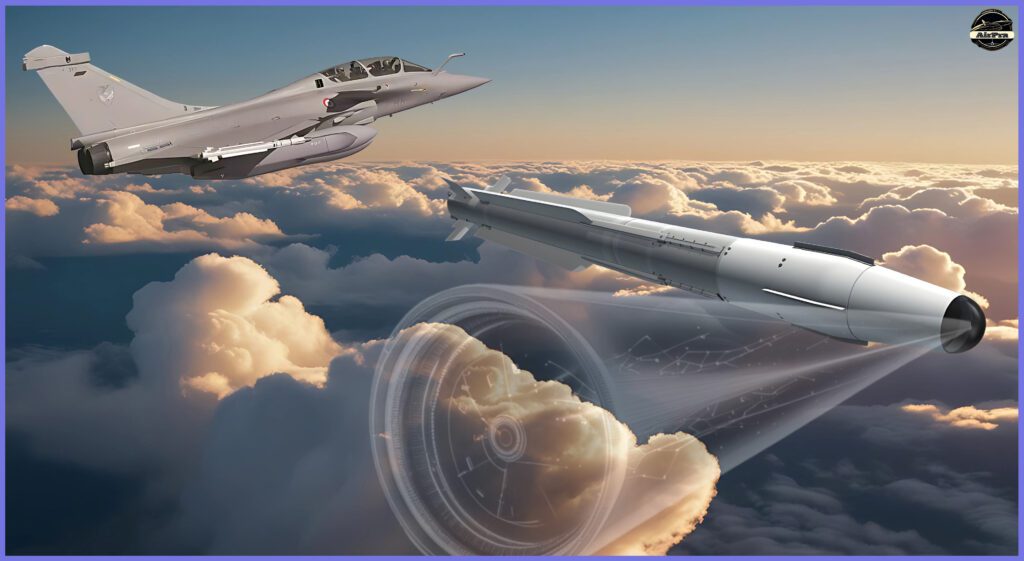
Operational Platforms_
Aircraft Integration: The MICA missile stands out for its unmatched adaptability, arming elite fighters like the Dassault Rafale, Mirage 2000, and Mirage F1, while even extending its reach to the Indian Air Force’s Su-30MKI—proving its true versatility on the global stage.
Global Operators_
The MICA air-to-air missile system today serves as a frontline weapon across the air forces of France, India, Egypt, Greece, Croatia, Qatar, Taiwan, the UAE, and Morocco. Beyond this, its surface-to-air variants are fielded by several other nations, underscoring MICA’s unmatched adaptability and battlefield-proven effectiveness in diverse operational environments.
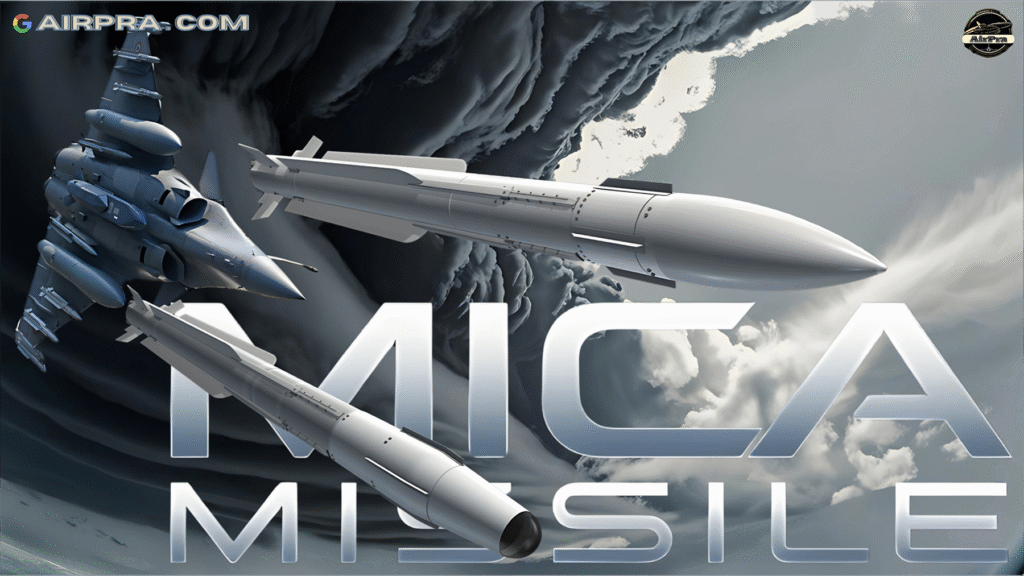
A Quick Message to Our Readers
Some details in our articles may change over time. For the most accurate and current information, we encourage you to check reliable and updated sources.
We’re passionate about bringing you trusted insights on military systems and global developments. Your support helps us continue this work. When you purchase through our affiliate links, you’re helping us grow while receiving high-quality products in return.
Your thoughts matter to us. If there’s a topic or defence system you’d like to learn more about, let us know in the comments—we’ll do our best to cover it.
Thank you for being part of our journey. We appreciate your time and interest—happy reading!
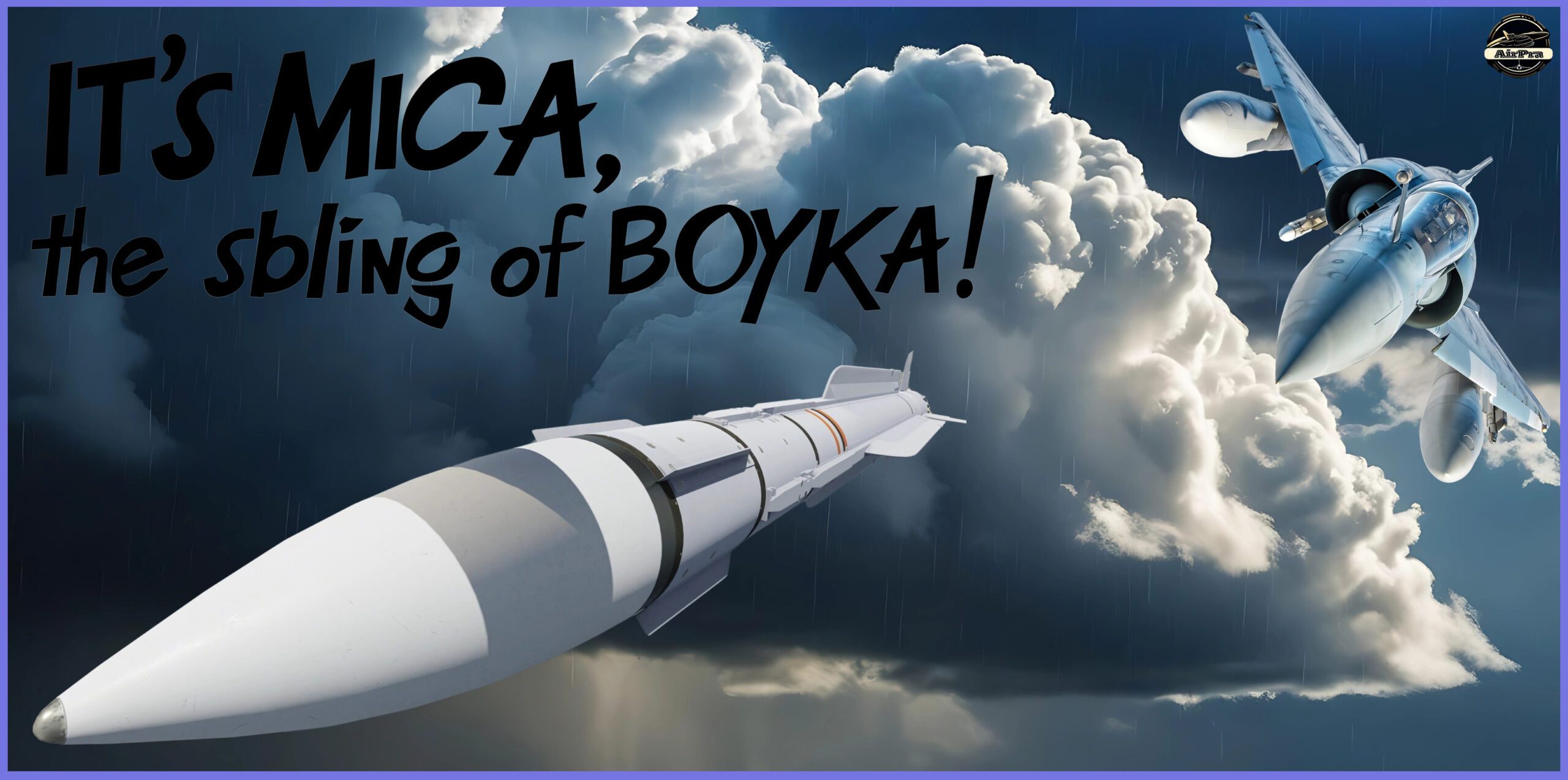
2 thoughts on “Discover the Best of the French MICA Missile”